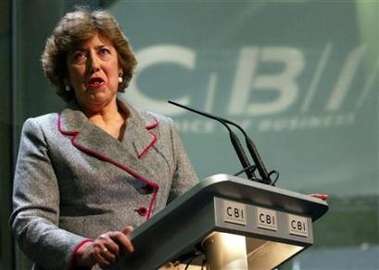Britain's spy chief warns of terrorist plots
(Reuters)Updated: 2006-11-10 10:34
LONDON - Britain's intelligence agency head was quoted on Friday as saying up to about 30 major terrorist plots were being planned in the country and that future threats could involve chemicals and nuclear technology.
"We are aware of numerous plots to kill people and damage our economy. What do I mean by numerous? Five? Ten? No, nearer 30 ... that we know of," Manningham-Buller said in a speech in London on Thursday that was reported by British media.
She was quoted as saying the plots were "priority one" cases.
Last year, Britain suffered its worst peace-time attack when four British Muslims blew themselves up on London's transport network, killing 52 commuters and wounding hundreds.
"My officers and the police are working to contend with some 200 groupings or networks, totaling over 1,600 identified individuals who are actively engaged in plotting or facilitating terrorist acts here and overseas," she said.
Manningham-Buller said the number of cases being pursued by security services had risen by 80 per cent since January.
"Today we see the use of home-made improvised explosive devices. Tomorrow's threat may - and I suggest will - include the use of chemicals, bacteriological agents, radioactive materials and even nuclear technology," she said.
Extracts of her speech were carried by the BBC, the top-selling Sun tabloid, the Times and the Guardian.
Manningham-Buller said it was clear from so-called "martrydom" videos that suicide bombers were motivated in part by "their interpretation as anti-Muslim of UK foreign policy, in particular the UK's involvement in Iraq and Afghanistan."
|
||
|
||
|
|

